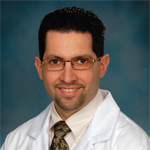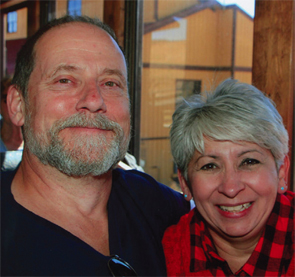
Foundation-supported investigator Amit Golding, MD, PhD, is working to better understand why the immune system turns against itself in such diseases as lupus and rheumatoid arthritis.
In 1969, Martha Lovato passed away from renal failure due to complications of lupus. Martha was 18 years old and survived only two years following her diagnosis. At the time, Martha’s disease was still a mystery to many physicians and researchers. Her treatment options were limited.
In fall 2004, after an unprecedented battle with shingles and stubborn joint pain, Martha’s sister, Yolanda Grundhoffer, received an unexpected diagnosis of lupus and rheumatoid arthritis.
“I had been tested when I was younger. It never crossed my mind that the doctor would tell me I had lupus. Just the word was taboo in my family.”
Although her life has changed dramatically since her initial diagnosis, the treatment she receives from her rheumatologist has given her the ability to live a nearly normal life. The memory of her sister is among her biggest motivators to stay strong in the face of disease.
“Even though I was young [when Martha became ill], I remember brushing her hair, putting hot towels on her aching joints and telling her stories while she cried from the pain. There are mornings I wake up still exhausted from the day before, and I don’t want to get out of bed. But I think of Martha and how the disease affected her, and I keep going. I know she would be upset if I gave up.”
Advancements in treatment options gave Yolanda the chance to live the life her sister was unable to. Yolanda is still hopeful for more research breakthroughs, but she is grateful for the increased longevity and quality of life for patients with rheumatic diseases. “If my sister had the medicine of today, she would be alive. I’m sure of it. So as we progress, and we study the genetics of people with certain diseases, I am sure we will get to the point of early detection. Even, one day, a cure.”

With the help of her rheumatologist, Yolanda Grundhoffer lives a nearly normal life with lupus and rheumatoid arthritis. Yolanda’s sister passed away from lupus complications in 1969.
Amit Golding, MD, PhD, physician scientist and assistant professor at the University of Maryland, also sees the importance of continuing progress in treatment advancements. “We have so many tools right now to treat patients, and at the same time, we have so many questions about what is causing the underlying conditions.”
Dr. Golding is one of the 3,097 rheumatology professionals who have received Foundation funding since the Foundation’s inception in 1985. In 2014, he received the Foundation’s Career Development Bridge Funding Award: K Supplement, which allowed him to study aberrant regulatory T cell (Treg) suppression of B cells in systemic lupus erythematosus. The primary focus of his research is to understand the number of different pathways in lupus and rheumatoid arthritis, in hopes that the knowledge could one day lead to new treatments for patients like Yolanda.
“There are a lot of things we know and a lot of things we don’t know. By asking these fundamental questions, hopefully we can ultimately come up with a new treatment for these diseases. Every research project that’s done, there is a seed for a future treatment.”


